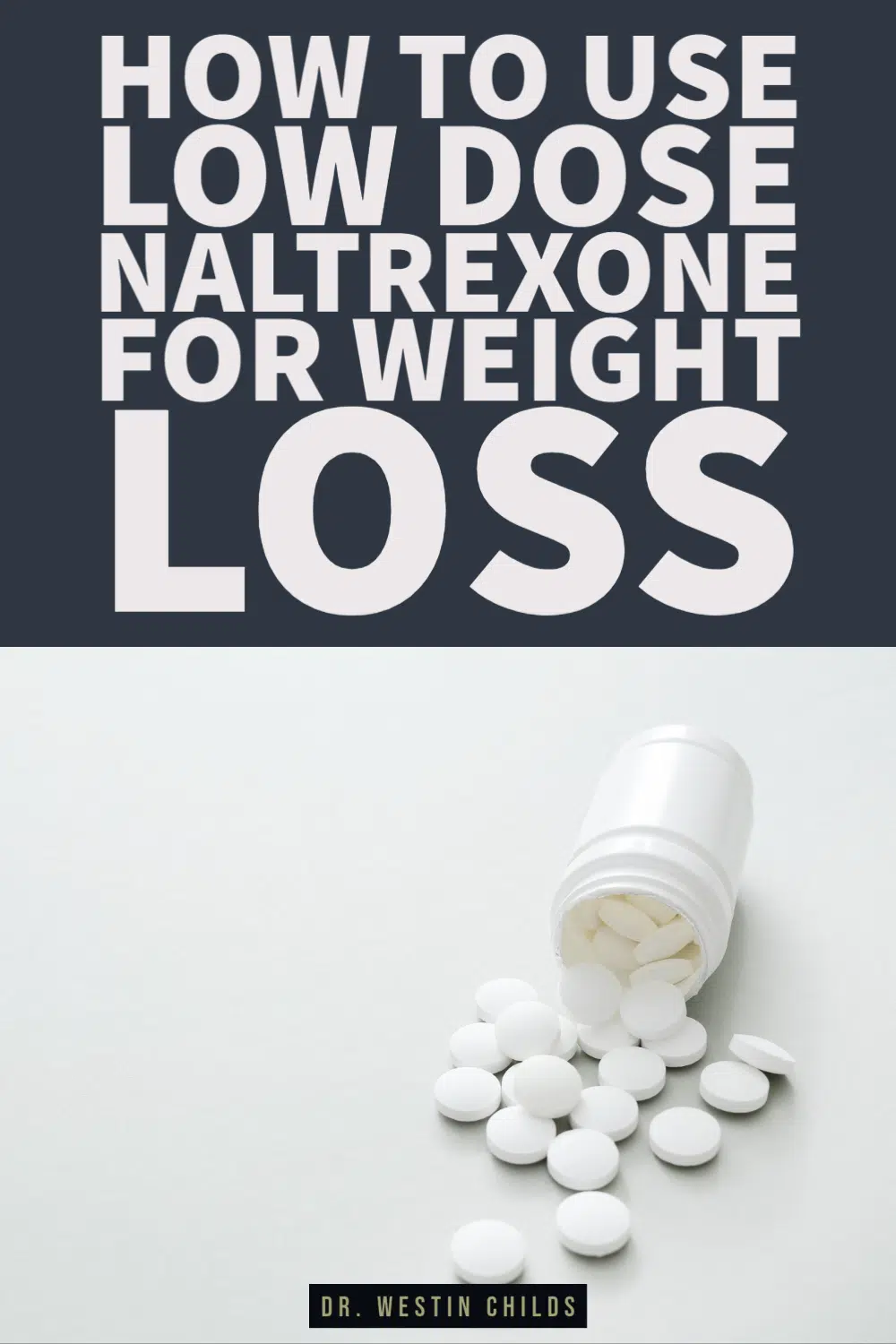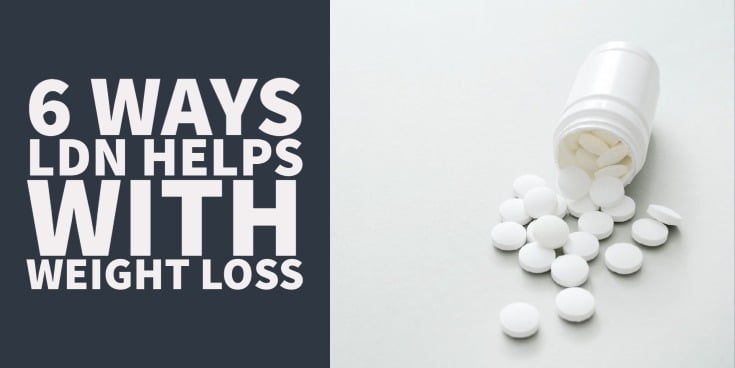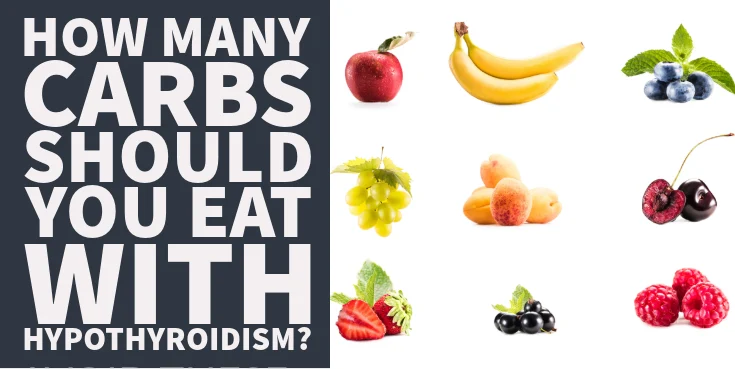Naltrexone, especially in low doses, can actually help the body lose weight in various ways.
This doesn’t mean it’s a miracle weight loss medication.
In fact, it’s far from it.
And only certain patients should even consider using this medication for weight loss.
I have found that certain patients tend to benefit more than others, especially hypothyroid patients with damaged metabolisms.
In this article, I will go over the various ways that Naltrexone might help to cause weight loss, who should consider using it and how to use it effectively.
Low Dose Naltrexone and Weight Loss
It’s important to discuss some basics about this medication before we dive into how it actually works.
First:
Naltrexone was created as an opioid antagonist (1) and most Doctors are aware of its use in this setting.
It’s commonly used to treat opioid-induced constipation and to block the effects of opioids at the cellular level.
In smaller doses, the medication has some very interesting side effects that can be helpful in treating various conditions like chronic pain, autoimmune disease, and even metabolic damage and weight loss resistance.
In low doses, it’s known as low-dose naltrexone or LDN for short.
Throughout this article, whenever I refer to Naltrexone I am also referring to LDN.
We will talk about dosing later on, but as a primer, the therapeutic dosing range for this medication in low doses varies between 3.0-4.5mg or so (depending on the person).
So the main question is this:
Does Naltrexone (AKA LDN) actually work for weight loss?
It turns out that the answer isn’t very clear.
Studies have shown that some patients tend to do well and lose weight when using this medication, and others have shown that it isn’t very effective and shouldn’t be used.
The answer is somewhere in between.
Certain patients tend to benefit more than others (we will talk about which ones those are later), but for now, let’s focus on how this medication works.
If we know how it helps with weight loss then we can easily figure out who should be taking it…
How LDN Helps with Weight Loss
As I mentioned previously we don’t know exactly how Naltrexone works to help with weight loss, but we can pick apart various studies to determine how it might be helping.
This is where things get interesting:
#1. Naltrexone Reduces Insulin Resistance
Studies have shown (2) that using Naltrexone (in this study 75mg) actually helped to lower fasting insulin levels by up to 40%.
If you’ve been reading my blog posts then you know that one of the primary causes of weight gain in many people (especially hypothyroid patients) is insulin resistance.
This condition is missed by many providers and patients who focus solely on blood glucose levels as a means to diagnose insulin-related problems.
So obviously any therapy that leads to a decrease in insulin levels will help with weight loss, but there is even more to it than that.
What’s even more interesting is that this study focused on women who have high testosterone levels (AKA high androgens) in addition to insulin resistance.
These patients commonly fall on the PCOS spectrum and the increased androgens contribute to excessive coarse hair growth, depression, weight gain, etc.
Naltrexone modulates cellular resistance to insulin (decreased insulin resistance), and since insulin resistance plays a direct role in high testosterone levels in females – this medication may have multiple benefits in this particular patient group.
First:
It may help lower insulin levels which may lead to weight loss.
Second:
It may help lower insulin levels which indirectly leads to a reduction in androgen levels and a reduction in androgen-related symptoms in certain women.
- Bottom line: Women with PCOS, high fasting insulin and high testosterone levels may benefit from taking naltrexone.
#2. Naltrexone May Increase Growth Hormone in Certain patients
Some studies (3) have shown that Naltrexone may help to increase Growth hormone levels.
This is important because growth hormone helps to not only build and maintain lean muscle mass (4) but also helps to increase fat burning (5) both of which can help with weight loss.
It is well known that as weight increases growth hormone decreases.
This is yet another indicator that weight gain (and weight loss) is mediated by hormonal factors and not just simply related to calories consumed.
What’s also interesting is the relationship between growth hormones and insulin.
As insulin increases growth hormone decreases.
So the more weight you gain the lower your growth hormone will be and the higher your insulin will be.
Naltrexone helps to decrease insulin levels which may improve growth hormone levels.
- Bottom line: Naltrexone may help to increase growth hormone in obese patients which may lead to improved lean muscle mass and improved metabolism.
#3. Naltrexone Modulates Appetite
We have to dive into this for a deeper understanding, but yes Naltrexone can help modulate and reduce your appetite (6).
I will put this into context on how this may be beneficial but first, we need to establish some basics about weight loss and weight gain:
- Chronic calorie restriction fails 99% of the time in sustaining weight loss
- Chronic calorie restriction results in increased leptin levels and decreased free T3 levels + other hormone changes which lead to weight gain over time
- Chronic calorie restriction leads to a compensatory metabolic change which results in a damaged metabolism that may persist for years (see the biggest loser study for more info)
- Generally, prescription weight loss medications target either appetite or metabolism, and yet they really don’t work that well long term
- Reducing appetite may lead to metabolic damage long term as is seen in chronic phentermine use (once patients stop taking it they gain their weight back)
Some of these changes might sound scary but there are ways to use certain medications to avoid these effects or to boost hormone changes that can lead to weight loss long term.
The way Naltrexone works on appetite may be similar.
First, we have to realize what your appetite really means…
Under normal physiologic influence, your body tries to match the amount of food you eat with your resting energy expenditure A.K.A your metabolism.
Put into simple terms:
If your body is burning 2,000 calories per day your brain will send signals to the body to help you consume as close to 2,000 calories per day.
If you only consume 1,500 calories then your brain will tell you that you are hungry.
It does this to try and match the caloric burn to food intake.
But this is under normal circumstances, what happens to patients who have hormone imbalances or who are overweight?
If you have a history of chronic calorie restriction or a history of yo-yo dieting then the above circumstances don’t apply to you.
Chronic calorie restriction leads to metabolic damage which lowers your metabolic rate (A.K.A metabolism).
So instead of burning 2,000 calories per day, you are now burning 1,200 calories per day (again please see the biggest loser study (7) which shows that calorie restriction results in metabolic damage for YEARS).
But there’s an even bigger problem:
Weight gain leads to hormonal changes (especially increased leptin levels) which alter your subjective sense of hunger.
So even though you are only burning 1,200 calories per day, your brain tells your body that you need to be eating 1,600 calories every day.
This mismatch is caused by compensatory hormonal changes, and the changes are very powerful.
So where does Naltrexone fit in?
Naltrexone may help to “normalize” this mismatch between calories burned and appetite.
So instead of asking for 1,600 calories per day, your brain settles back down to the 1,200 calories that you are burning.
By matching the 1,200 calories your burn to the 1,200 calories your body seeks you have a reduction in appetite overall – but not in the “traditional” sense.
As a side note, Naltrexone won’t necessarily heal your metabolism (that can take a long time depending on how much damage you have) but it’s a step in the right direction.
- Bottom line: Naltrexone may help to normalize appetite in patients with damaged metabolism which helps to match appetite to resting energy expenditure.
#4. Naltrexone Acts as an Anti-Inflammatory Agent
This may be more well-known than the other benefits listed, but Naltrexone helps to reduce inflammation and studies have shown that it can be used as a novel anti-inflammatory agent (8).
As you probably know inflammation is involved in the pathophysiology of many diseases and disease states.
Inflammation is also an important factor when it comes to weight gain and weight loss resistance.
Inflammation may lead to the following:
- Decreased T4 to T3 conversion (9) (leading to a state of thyroid resistance)
- Increased insulin resistance (leading to weight gain)
- Low testosterone and increased expression of aromatase (10) lead to high estrogen levels
- Increased leptin levels (11) (leading to weight gain)
- Increased appetite (12)
High levels of inflammation cause several hormonal changes which all lead to conditions where weight is gained more easily while simultaneously being more difficult to lose.
Not a situation you want to be in.
So how does Naltrexone help?
Studies have shown that Naltrexone may help to reduce inflammation (especially in chronic pain).
By relieving inflammatory cytokines and markers of inflammation hormone levels become more regulated and balanced which may allow easier weight loss.
Certain patients seem to be more sensitive to weight changes, especially patients with chronic pain.
Constant and chronic pain itself may change neurotransmitters, alter appetite, lead to a decreased appetite and result in inflammation.
In addition, patients with Chronic pain also have some component of tissue-level hypothyroidism contributing to their pain.
Many of these patients are also using Narcotics which have been shown to reduce metabolism and blunt thyroid conversion (more info below).
The use of Naltrexone in patients with chronic pain may allow them to come off of Narcotics which improves metabolism and inflammation overall.
- Bottom line: Naltrexone may help to reduce inflammation which may make weight loss easier in certain patients.
#5. Naltrexone May Help Improve Sleep & Sleeping Patterns
The importance of sleep when it comes to weight loss can’t be overstated.
Lack of sleep leads to inflammation (13) and weight gain (14), the studies are quite clear.
You probably also know that sleep apnea can lead to increased weight gain, but also weight gain can lead to sleep apnea (15) – creating a chicken-and-egg-like scenario.
This is where Naltrexone comes into play.
Naltrexone has been shown to help improve sleeping patterns significantly in patients with sleep apnea (16).
In addition, some studies have shown that Naltrexone helps improve sleep in patients with complex regional pain syndrome (17) and other chronic pain syndromes as well.

On a more subjective note, many of my current patients also report an improvement in sleep after starting low doses of naltrexone (on the order of 1.5-4.5mg per night).
For this reason, I generally recommend that patients take LDN at night.
This indicates to me that there is likely some other way that naltrexone is improving sleep, either through the modulation of neurotransmitter levels or through melatonin precursors.
Either way, we know that naltrexone can be used to help improve sleep patterns in individuals with chronic pain, sleep apnea, and CPRS, and at least seems to subjectively help somewhat in patients with hypothyroidism and Hashimoto’s.
- Bottom line: Naltrexone may help to improve sleeping patterns. Lack of sleep has been associated with weight gain and inflammation, so improving sleep can help improve weight loss.
#6. Naltrexone & Thyroid Function (Including Hashimoto’s Thyroiditis)
This is another very important consideration for many patients who are struggling to lose weight and who also have Hypothyroidism or Hashimoto’s thyroiditis.
Some studies have shown that Naltrexone can help to increase total T3 levels and improve T4 to T3 conversion (18).
If you aren’t familiar with how thyroid function modulates the metabolism you can check out this post for more information (thyroid hormone is critical to weight loss and hormonal regulation).
In addition to the benefits listed above some studies (19) have shown that the use of LDN can help to improve the immune system and reduce autoantibodies in some autoimmune conditions.
The combination of increasing thyroid hormone levels while possibly improving and/or reducing thyroglobulin antibodies is of special consideration for those with Hashimoto’s thyroiditis.
This autoimmune disease results in thyroidal gland destruction over time which creates a situation of hypothyroidism.
Hypothyroidism combined with autoantibodies to thyroid glandular tissue results in weight gain and weight loss resistance.
Even from a subjective standpoint (I will discuss this below), I’ve found that many patients with Hypothyroidism and Hashimoto’s stand to benefit from the use of LDN (naltrexone) in small doses of 3.0-4.5mg.
I have successfully used Naltrexone in both hypothyroidism and Hashimoto’s for weight loss.
It’s important to realize that just because it might improve thyroid function doesn’t necessarily mean that it will.
Due to a variety of factors, it seems that upwards of 50% of patients seem to benefit from using Naltrexone and LDN, despite what the research may or may not show.
This indicates to me that we still have a lot to understand about the use of this medication, especially considering the multiple mechanisms of action listed above.
- Bottom line: In patients with Hypothyroidism and Hashimoto’s Thyroiditis Naltrexone may help to improve total T3 and improve T4 to T3 conversion in addition to reducing inflammation and autoimmunity.
Who Should Consider using LDN + Naltrexone?
As I’ve mentioned above Naltrexone certainly won’t work for every patient and shouldn’t be considered a miracle weight loss drug.
Having said that there are certainly patients who stand to benefit from this medication more than others.
Through a combination of research and personal experience, I’ve created a list of patients who generally benefit the most from Naltrexone use.
It’s important to realize that when I use Naltrexone and LDN I almost always use it in combination with supplements, other medications, and hormones for the most benefit.
I recommend if you are interested in this medication after reading this article that you find someone who can monitor all of these factors. This will help you get the results you are looking for.
You can see an example of a patient who lost 40+ pounds using the combination of Victoza + LDN in this case study.
If you aren’t sure if Naltrexone is right for you then consider these guidelines…
Who should consider using LDN and Naltrexone for weight loss:
- Patients with Weight gain and Autoimmune disorders
- Patients with Hypothyroidism and Hashimoto’s Thyroiditis
- Patients with Sleep disorders and REM sleep disorders
- Patients with Chronic pain (avoid taking this medication if you are on narcotics)
- Patients with known inflammatory conditions (even non-specific inflammation)
- Patients with low resting energy expenditure (or slow/low metabolism)
- Patients with ravenous appetites and a mismatch between energy consumption and appetite
- Patients with hormone imbalances like Insulin and Leptin resistance
Again if you fall into any of these categories it doesn’t necessarily mean that Naltrexone will work for you, instead, it means that you have a high chance of this medication helping you with weight loss.
The weight loss effect is most likely mediated through indirect changes to hormones, appetite, and other pathways.
Weight loss from Naltrexone by itself is generally modest (probably on the order of 5-10 pounds), but when combined with hormone therapy and other medications it can be quite powerful.
In my clinical practice I’ve started to notice some other benefits of using Naltrexone, and in particular low dose naltrexone in certain patients.
These are benefits that I’ve personally noticed in my patients and they don’t necessarily have studies to show widespread effectiveness, but I have still found them to be of benefit.
I’ve found that patients with damaged metabolisms and what I refer to as “body set point malfunction” seem to benefit from using LDN concurrently with other therapies.
Certain patients have difficulty in not only losing weight but also maintaining weight loss.
When the metabolism is severely damaged it’s as if the brain has set a “switch” that says the body is going to be this weight no matter what therapies are started.
This results in temporary weight loss, but the weight is usually regained in a matter of weeks.
Naltrexone in low doses seems to attenuate this response and help lower this set point.
I suspect this is primarily mediated through hypothalamic function.
I’ve also found the combination of Symlin plus LDN to be particularly effective in helping some postmenopausal women lose the last 10-20 pounds of weight that they’ve gained as a result of menopause.
Symlin appears to help with weight reduction but the LDN seems to help maintain lower weights, suggesting to me that it may influence the hypothalamic set point in the body.
I will come up with some case studies later to show you how this can be used in combination for maximum benefit.
Wellbutrin + LDN as a combination weight loss medication
This combination of medications is known as Contrave.
I don’t typically recommend medications targeted specifically for the use of “weight loss” and this medication is no different.
The target of this medication is to reduce appetite to reduce the total calories consumed.
It sounds good on the surface but chronic calorie restriction tends to lead to metabolic damage long term.
In addition, the dosing of naltrexone in Contrave is higher than I generally recommend.
I also don’t recommend the use of neurotransmitter-modulating medication unless absolutely necessary.
These medications do have long-term implications on neurotransmitter levels (and while they do help some) have the chance to cause considerable issues for other patients.
It’s far better to approach weight loss in a targeted manner instead of a “spray and pray” approach.
Bottom Line & Recap
Naltrexone is a little-known medication that can help certain patients lose weight by modulating certain hormone imbalances, improving/normalizing hypothalamic function, improving sleep, improving thyroid production/conversion, and potentially reducing inflammatory levels.
Special interest should be given to Naltrexone if you have hypothyroidism and/or Hashimoto’s thyroiditis because it may improve T4 to T3 conversion and improve total T3 levels.
Naltrexone, particularly in smaller doses (1.5-4.5mg per day) may help patients with these medical conditions lose weight.
Make sure you use Naltrexone as part of an overall treatment plan, for best results please consider using it in combination with hormone therapies, nutrients/supplements, and dietary/lifestyle changes.
More recently I have also found success in treating patients with low resting energy expenditure and in combination with Symlin for reducing weight in postmenopausal women.
Now I want to hear from you:
Have you used Naltrexone or LDN previously?
Did it help you lose weight? Why or why not?
Leave your questions or comments below!








